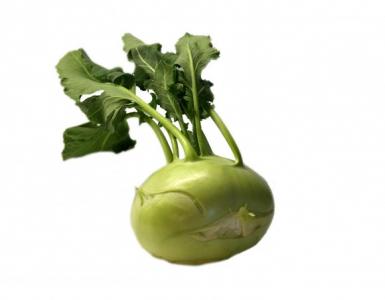Freedom-loving dreams are an ardent and rather strange spirit. At the same time, a new landowner galloped into his village And just as ...: akuklev — LiveJournal
". see also Onegin's letter to Tatyana.)
Tatyana's letter to Onegin. An excerpt from the film "Onegin"
XXXI
Tatyana's letter is in front of me;
I keep it holy
Who inspired her with this tenderness,
And words of kind negligence?
Who inspired her touching nonsense,
Crazy heart conversation
Both fascinating and harmful?
I can not understand. But here
Incomplete, weak translation,
From a living picture, the list is pale,
Or played out Freishitz
Through the fingers of timid students:
Tatyana's letter to Onegin
I am writing to you - what more?
What else can I say?
Now I know in your will
Punish me with contempt.
But you, to my unfortunate share
Though a drop of pity keeping,
You won't leave me.
At first I wanted to be silent;
Believe me: my shame
You would never know
When I had hope
Rarely, at least once a week
To see you in our village
Just to hear your words
You say a word, and then
All think, think about one thing
And day and night until a new meeting.
But they say you are unsociable;
In the wilderness, in the village, everything is boring for you,
And we ... we do not shine with anything,
Even though you are welcome.
Why did you visit us?
In the wilderness of a forgotten village
I would never know you
I would not know bitter torment.
Souls of inexperienced excitement
Reconciled with time (who knows?),
By heart I would find a friend,
Would be a faithful wife
And a good mother.
Another! .. No, no one in the world
I wouldn't give my heart!
That is the predestined council in the highest ...
That is the will of heaven: I am yours;
My whole life has been a pledge
Faithful goodbye to you;
I know you were sent to me by God
Until the grave you are my keeper ...
You appeared to me in dreams
Invisible, you were already sweet to me,
Your wonderful look tormented me,
For a long time ... no, it was not a dream!
You just entered, I instantly found out
All numb, blazed
And in her thoughts she said: here he is!
Isn't it true? I heard you
You spoke to me in silence
When I helped the poor
Or comforted by prayer
The anguish of an agitated soul?
And at this very moment
Aren't you, sweet vision,
Flickered in the transparent darkness,
Crouched quietly to the headboard?
Is it not you, with joy and love,
Words of hope whispered to me?
Who are you, my guardian angel
Or an insidious tempter:
Resolve my doubts.
Maybe it's all empty
Deception of an inexperienced soul!
And something completely different is destined ...
But so be it! my fate
From now on, I give you
I shed tears in front of you
I beg your protection...
Imagine I'm here alone
Nobody understands me,
My mind is failing
And I must die silently.
I'm waiting for you: with a single look
Revive the hopes of the heart
Or break a heavy dream,
Alas, a well-deserved reproach!
I'm cumming! Scary to read...
I freeze with shame and fear ...
But your honor is my guarantee,
And I boldly entrust myself to her ...
Do you know the text of A. Pushkin's novel "Eugene Onegin"?
QUIZ
Who knows what glory is!
At what price did he buy the right,
Opportunity or grace
Over everything so wise and crafty
Joke, mysteriously be silent
And call a leg a leg? ..
Anna Akhmatova
1. Among the following popular expressions from Pushkin's works, name those taken from the novel "Eugene Onegin".
Genius and villainy are two incompatible things;
and happiness was so possible;
what passes will be nice;
I remember wonderful moment;
it is impossible to harness a horse and a quivering doe into one cart;
living power is hateful for the mob;
Love for all ages.
2. How does Pushkin characterize his main character?
Onegin was in the opinion of many
(Judges decisive and strict)
Small scientist, but pedant…
But pantaloons, tailcoat, vest,
All these words not in Russian;
And I see, I blame you,
What is it my poor syllable
I could dazzle much less
In foreign words,
Even though I looked in the old days
In the Academic Dictionary.
4. “Twice a year they fasted,” it is said about the Larin spouses. What does the word mean talk?
5. What do you know about the holiday referred to in the following lines?
The holidays have arrived. That's joy!
Guessing windy youth
Who has no regrets
Before which life is far
Lies bright, boundless; ..
6. What does it's time between the wolf and the dog, which is discussed in the fourth chapter?
7. A cab is pulling to the stock exchange. About what stock exchange is it about? Why does a cab driver need a stock exchange?
8. Before marriage, Tatyana's mother “knew how to pronounce it through her nose” “Russian H How N French". How to read Russian and French letters correctly here?
9. Does Asya, the heroine of the story of the same name by I. Turgenev, correctly quote A. Pushkin?
Asya looked down and laughed, a low, light laugh; I didn't know that kind of laugh behind her. “Well, tell me,” she continued, smoothing the hems of her dress and laying them on her legs ... “tell or read something, as, remember, you read to us from Onegin ...” She suddenly thought ... “Where is the cross today? and the shadow of the branches over my poor mother!” she said in an undertone. “It is not so with Pushkin,” I remarked.
10. Explain the meaning of the expression fashion wives.
Muses "ka already tired of thundering;
The crowd is busy with the mazurka;
Loop and noise and tightness;
The spurs of the cavalry guard jingle;
The legs of lovely ladies are flying;
In their captivating footsteps
Fiery eyes fly
And drowned out by the roar of violins
Jealous whisper of fashionable wives.
11. What does London sell? scrupulous?
All than for a plentiful whim
Trades London scrupulous
And along the Baltic waves
For the forest and fat carries us ...
12. Explain the meaning of the underlined word.
Villages flashed; here and there
The herds roamed the meadows,
And the canopy expanded thick
Huge, neglected garden,
Shelter of the pensive dryad.
13. Where does the Lethe river flow?
And someone's heart he will touch;
And, preserved by fate,
Perhaps it will not sink in Lethe
The stanza I put together...
14. What does this cry mean? Who is screaming?
It's already dark: he sits in the sled.
“Drop?, drop?!” - there was a cry;
Frost dust silver
His beaver collar.
15. What was the meaning of the word rake during Pushkin's time?
So the young man thought rake,
Flying in the dust on postage,
By the will of Zeus
Heir of all his relatives.
16. Read an excerpt from the article by V. Dahl “Death of A.S. Pushkin". From which chapter of the novel "Eugene Onegin" are the highlighted words taken?
In the morning the pulse was extremely small, weak, frequent - but from noon it began to rise, and by 6 o'clock it beat 120 per minute and became fuller and harder; but at the same time, a slight general fever began to appear... During the long, languid night, I looked with contrition of soul at this mysterious struggle of life and death - and could not fight off the three words from Onegin, the three terrible words that in my ears, in my head, - the words: well? killed! ABOUT! How much power and eloquence in these three words!
17. What item of clothing is discussed in the next stanza?
While in the morning dress,
putting on wide bolivar,
Onegin goes to the boulevard
And there he walks in the open,
Until the dormant breguet
Lunch will not ring for him.
18. anecdotes from Romulus to the present day?
He had no desire to rummage
In chronological dust
Genesis of the earth;
But days gone by jokes
From Romulus to the present day
He kept it in his memory.
19. Explain how you understand the expression with a soul directly Goettingen?
To your village at the same time
The new landowner galloped
And equally rigorous analysis
In the neighborhood gave a reason:
By the name of Vladimir Lensky,
With a soul straight from Goettingen,
Handsome man in full color of years,
Kant's admirer and poet.
20. How do you understand the meaning of the word alien? What part of speech is this?
Eugene was more tolerable than many;
Although he knew people, of course
And in general he despised them, -
But (there are no rules without exceptions)
He was very different from others.
AND alien respected the feeling.
21. Do you know what is corvée's yoke And quitrent? How does Onegin characterize his decision to replace corvée with dues?
In his wilderness, the desert sage,
Yarem he is an old corvée
I replaced the quitrent with a light one;
And the slave blessed fate.
22. What did the expression mean in Pushkin's time shave foreheads?
She traveled to work
salted on winter mushrooms,
Managed expenses shaved foreheads,
I went to the bathhouse on Saturdays
She beat the maids, getting angry -
All this without asking the husband.
23. Why in the novel ice characterized as excised?
On the blue excised ice
The sun is playing melts dirty
The streets are full of snow.
24. How was it possible to travel in Pushkin's time?
So thought the young rake,
Flying in the dust on postal...
Unfortunately, Larina dragged herself
Afraid of expensive runs,
Not on postal, on their own,
And our maiden enjoyed
Road boredom is complete:
They traveled for seven days.
25. What did it mean to be noble during Pushkin's time?
Is it not because in high society
Now I must appear;
that I am rich and noble,
That the husband is mutilated in battles,
What is it that the yard caresses us for?
26. How to understand the exclamation of a spectator dozing in the theater?
And her husband is dozing in the corner behind her,
Sleepy fo "ra will scream
He yawns and snores again.
27. When "Eugene Onegin" was fully published, contemporaries suddenly discovered that Eugene received his name contrary to literary tradition. Which?
ANSWERS
1. Two popular expressions: and happiness was so possible; Love for all ages.
2. Pedant, according to the definition of Pushkin's Dictionary of Language, - "a person who flaunts his knowledge, his scholarship, judging everything with aplomb."
3. In the preface to the “Dictionary of the Russian Academy” it was reported that “all foreign words introduced without need” were excluded from the dictionary.
4. Govet, e "yu, e" eat, nesov. Fasting in preparation for confession and communion at the time set by the church (church.). || trans. Eating poorly, fasting, abstaining from food (colloquial). My stomach hurts and I've been fasting for two days now. Dictionary Russian language Ushakov.
According to church rules, Orthodox Christians fast four times a year. Larina's spouses, most likely, fasted during the Great and Christmas Lent. This means that they did not adhere to strict church rules.
5. Christmas time- two weeks after the feast of the Nativity of Christ. In Christmas time, girls wonder about their betrothed.
6. This expression is Gallicism, i.e. borrowed from French, and means "twilight".
7. First meaning: "an institution for the conclusion of large commercial and financial transactions." In its second meaning, the word exchange in the time described by Pushkin meant street cab parking.
9.
Now I'm happy to give
All this rags of masquerade
All this brilliance, and noise, and fumes
For a shelf of books, for a wild garden,
For our poor home.
For those places where for the first time,
Onegin, I saw you
Yes, for a humble cemetery,
Where is now the cross and the shadow of the branches
Over my poor nanny ...
10. fashionable wife- dandy. An expression taken from a satirical literature XVIII V. See work I.I. Dmitrieva"Fashionable Wife" (1791).
11. In the language of the 18th and early 19th centuries. it fit the current word haberdashery.. Dealer in scrupulous goods- Dealer in small haberdashery items.
12. Dryad- V ancient Greek mythology Forest Nymph.
13. Summer- the river of oblivion in the realm of the dead (Greek myth.).
14. "Drop, drop!"- a shout, a shout, an exclamation of a coachman, warning pedestrians about a fast-moving carriage.
15. Rake- naughty, prankster, fool. So they spoke of young people, whose behavior combined reckless gaiety and contempt for secular decency. In the dictionary, ed. S. Ozhegova: rake (unfold disapproved.) - a young man who spends time in frivolous undertakings, in pranks, an idler.
16.
Chapter VI, stanza XXXV;
In anguish of heart remorse,
hand holding a pistol,
Yevgeny looks at Lensky.
"Well? killed," neighbor decided.
Killed!.. With a terrible exclamation
Struck, Onegin with a shudder
He leaves and calls people.
17. wide bolivar- headdress - a hat in the form of a cylinder with wide brim, named after Bolivar Simon (1783-1830) - the leader of the national liberation movement in Latin America.
18. At the time of Pushkin joke called "a little entertaining story." Onegin remembered a lot jokes which is confirmed by the expression Romulus(the legendary founder of Rome) to the present day.
19. Vladimir Lensky studied in Germany at the University of Göttingen, one of the most liberal universities in Europe. His graduates, friends and friends of Pushkin, belonged to the number of liberals and freedom lovers: one of the leaders of the Decembrist movement N.I. Turgenev and his brother A.I. Turgenev studied in Göttingen, where Pushkin's favorite lyceum teacher A.P. was educated. Kunitsyn and a member of the Union of Welfare Hussars Kaverin.
20. Adverb alien means: "from outside", "remaining uninvolved".
21. Corvee- free forced labor of serfs on landlords' land. quitrent- cash or paid in products Agriculture collection. Becoming a landowner, Onegin facilitated the work of serfs.
22. Shave foreheads- recruit peasants. So in old Russia they called recruit soldiers. When recruiting, the recruit shaved off the hair in front.
23. cut ice on the Neva - an interesting sign of the life of St. Petersburg in the century before last. In winter, the ice was “cut” on the Neva, preparing large cubes of ice for glaciers. With the onset of the March thaw, they were transported on sledges to buyers.
24. Riding for travelers using government horses (riding on postal or foldable), was carried out as follows: the traveler stocked up on the road - a document where his route, rank, rank were entered (the number of horses depended on this). Podorozhnaya was registered at the outposts; data on those who left or entered the capitals were published in newspapers. Larins went to Moscow on their(or long). In these cases, the horses were not changed at the stations, but they were allowed to rest; at night, of course, they also did not move from their place, from which the travel speed sharply decreased.
25. to be noble meant to belong to the titled nobility. Having married Prince N, Tatyana became a princess and became noble. The princely title, unlike the count, was ancient: among the princes there could be descendants of ancient families.
26. handicap(or foro) - from Italian fuora!– “out!” - an exclamation of approval, calling the artist to the stage to repeat the number.
27. Name Eugene according to the tradition of 18th century literature, they always gave a negative character. Pushkin's novel returned the literal meaning to the name: Eugene translated from Greek - noble.
Used dictionaries
1. Dictionary of Pushkin's language. M.: Azbukovnitsa, 2000.
2. Explanatory dictionary of the Russian language, ed. S.I. Ozhegov. M.: Publishing house "Russian language", 1977.
E.Yu. KULAKOV,
Surgut
Illustrations by P. Sokolov from the album
to "Eugene Onegin" (1855-1860)













